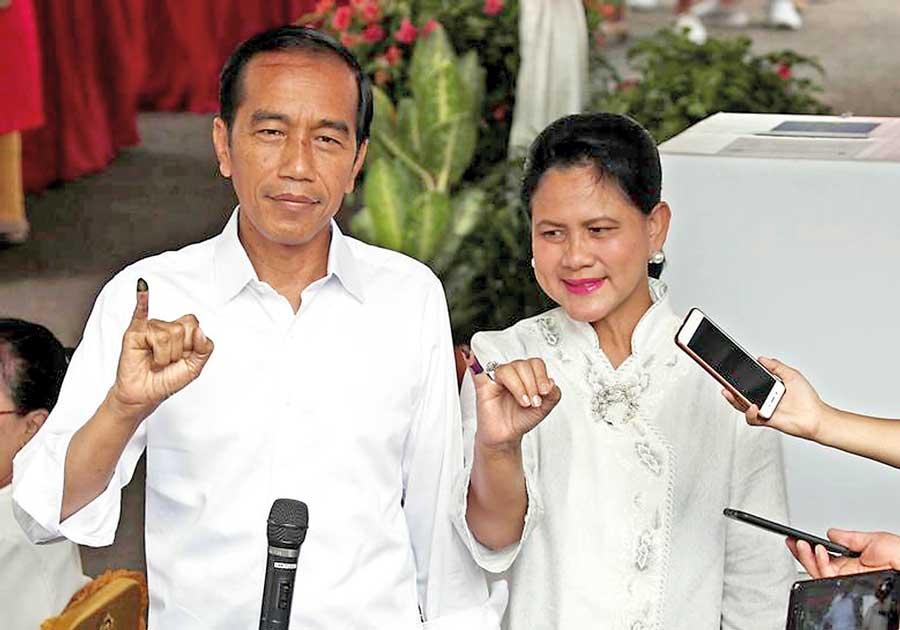18 Apr 2019 - {{hitsCtrl.values.hits}}

Unofficial preliminary vote counts from Indonesia’s presidential election on Wednesday showed incumbent Joko Widodo with a roughly 10-percentage-point lead over his main opponent.
The quick counts, taken from a sample of polling stations by five pollsters, had Joko ahead with around 55 per cent, while his rival Prabowo Subianto was trailing at 45 per cent.
“I predict that [Joko] will win,” said Hanta Yuda, director of the survey agency Poltracking.
The quick counts have proved accurate in predicting past election winners in Indonesia.
Indonesians flocked to polling stations at 7 am to vote in what has been described by experts as the world’s largest single-day elections.
It is the first time the country’s parliamentary and presidential elections have been held on the same day.
The contest between Joko and Prabowo is a repeat of the 2014 presidential election, which Joko narrowly won.
Before the election, Joko had appeared on track for re-election, with most polls suggesting that he had a two-digit lead.
“Even though some people are apathetic, I think it’s important to vote for Indonesia’s future. Vote with your conscience,” said Hadi Wiguna, who was queueing to vote at a polling station in central Jakarta.
Official results are not expected until late May.
After casting his vote earlier Wednesday, Prabowo said he was optimistic.
“We hope and we pray today’s election will be fair and peaceful,” he told reporters.
But he warned that his supporters may not be happy if they perceived the election to be not fair.
“For an election to be peaceful, it has to be fair and free of fraud,” he said.
Joko was equally upbeat.
“We are always optimistic in our work,” he said after voting in central Jakarta, wearing a white shirt and rolled-up sleeves.
Sixteen national political parties are fielding 250,000 candidates to contest more than 20,000 seats in the national, provincial and municipal parliaments.
DPA, 17th APRIL, 2019
15 Nov 2024 31 minute ago
15 Nov 2024 2 hours ago
15 Nov 2024 2 hours ago
15 Nov 2024 3 hours ago
15 Nov 2024 3 hours ago